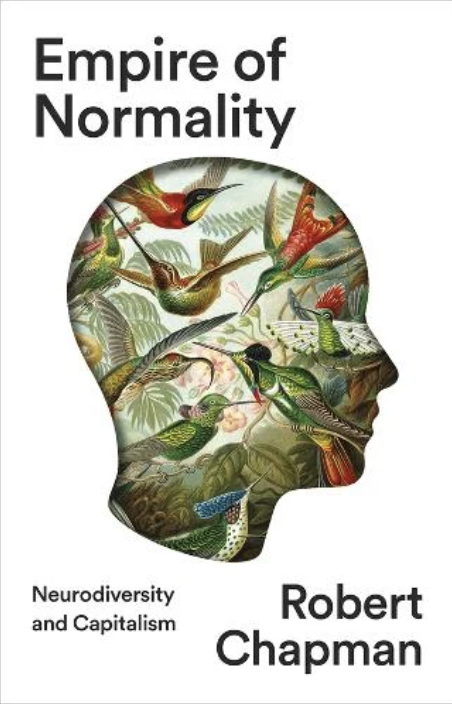Empire of Normality: Neurodiversity and Capitalism
Is neurodivergence as a concept a product of capitalism? This is the question of Robert Chapman’s Empire of Normality: Neurodiversity and Capitalism.
Chapman traces the history of capitalism alongside the history of disability to show how being ‘normal’ was constructed to mean people who can function better under systems which require certain ways of being cognitively and physically. For example, being able to cope more acceptably with boredom at work or the attention required to sit still in school, or being able to cope with the levels of sociality or overstimulation needed to work in the service industry.
‘Normal’ is then a product of capitalism, defined by how an individual copes living under capitalism, rather than some absolute truth. Under neoliberalism, which is the system we live under in the West today, there has been a ‘mass disabling event’ where vast numbers of people are diagnosed and treated for anxiety, depression, as well as neurodivergent diagnoses, for being unable to cope with living under this system. Depression in particular is often explained as a ‘chemical imbalance’ without reference to the context of a person’s life.
Chapman updates Marx’s theory of alienation (that we become estranged from ourselves and others under capitalism because we are so disconnected to the outcomes of our labour) to consider the toll of cognitive and emotional labour and its effect on mental health. Rather than seeing each individual as part of natural cognitive and neuro diversity, we are sorted into those who are normal or well, on the one hand, and those who are disabled, on the other.
I think this book is especially interesting for thinking about how we come to think of ourselves, our identities, and our relationship to the world. It can be easy, almost natural, to see yourself a productivity machine in service of something larger than you, or as a product to be marketed online. Capitalism is so deeply ingrained in every aspect of lives that it can be hard to describe ourselves outside the measurements of productivity, perfectionism and objectification.
Chapman suggests that liberation comes from challenging this logic of capitalism. I agree that it can helpful to ask yourself – is this really how I think or is this capitalism?
